Tobramycin Injection
$15.00 – $100.00
| Pack Size | Price | Price / Unit | Quantity | |
|---|---|---|---|---|
| 1 Injection | $15.00 | $15.00/ unit | ||
| 5 Injections | $60.00 | $12.00/ unit | ||
| 10 Injections | $100.00 | $10.00/ unit |
Want to order in bulk / B2B price ? | Send Inquiry |


| SKU | 11432 |
| Manufacturer | Pace Biotech |
| Categories | Infection |
| Delivery Time | 10 - 14 Working Days |
| Strength | 80mg/2ml |
Introduction to Tobramycin Injection
Tobramycin injection is a medication used to treat various bacterial infections. It belongs to a class of drugs known as aminoglycoside antibiotics. Tobramycin is effective against a wide range of bacteria, particularly those causing severe or life-threatening infections.
Tobramycin injection is manufactured by Pace Biotech. Promoters of the company has long experience of 35 years in pharma field and well versed with all the latest developments in Pharma Industry pace biotech.
Tobramycin works by inhibiting the synthesis of bacterial proteins, ultimately leading to the death of the bacteria. It does this by binding to the ribosomes, which are cellular structures responsible for protein synthesis in bacteria.
Tobramycin injection is typically prescribed for serious bacterial infections, especially those caused by Gram-negative bacteria like Pseudomonas aeruginosa. It is commonly used in hospital settings, particularly for conditions like pneumonia, urinary tract infections, and septicemia (bloodstream infection).
Throughout the course of treatment, regular monitoring of kidney function, hearing, and vestibular function is essential. Blood tests and specialized hearing tests may be performed as part of this monitoring. tobramycin is usually administered intravenously (IV) or intramuscularly (IM). The choice of administration route depends on the specific infection, its severity, and the patient’s condition. Tobramycin can potentially cause hearing loss or affect balance (vestibular) function, especially if administered at high doses or for extended periods. This risk is higher in patients with pre-existing hearing problems.
Key Information:
- Mechanism of Action
- Administration
- Dosage
- Precautions
- Side Effects
- Drug Interactions
- Monitoring
- Storage
- Emergency Situations
Uses of Tobramycin Injection
Tobramycin injection is a potent antibiotic primarily used to treat severe bacterial infections. Its effectiveness is particularly notable against Gram-negative bacteria, including strains that are resistant to other antibiotics. Here are some specific uses of Tobramycin injection:
- Pneumonia
- Urinary Tract Infections (UTIs)
- Septicemia (Bloodstream Infection)
- Intra-Abdominal Infections
- Skin and Soft Tissue Infections
- Bone and Joint Infections
- Cystic Fibrosis
- Burn Wound Infections
- Post-Operative Infections
- Empirical Therapy
- Hospital-Acquired Infections
How Does Tobramycin Injection Works?
Tobramycin is a type of antibiotic belonging to the class of drugs known as aminoglycosides. It works by disrupting the protein synthesis process in bacteria, ultimately leading to their death. Here’s a more detailed explanation of how Tobramycin injection works:
- Targeting Bacterial Ribosomes
- Binding to Ribosomal Subunits
- Misreading of Genetic Code
- Faulty Protein Synthesis
- Bactericidal Effect
- Selective Toxicity
- Limited Activity Against Anaerobic Bacteria
- Complementary Therapy
Side Effects of Tobramycin Injection
Tobramycin injection, like any medication, can cause side effects. It’s important to note that not everyone will experience these side effects, and the severity and likelihood of occurrence can vary. Common side effects of Tobramycin injection may include:
- Nausea and Vomiting
- Diarrhea
- Pain or Redness at the Injection Site
- Rash or Itching
- Fever or Chills
- Hearing Loss
- Kidney Damage
- Balance Problems (Vestibular Dysfunction)
- Neuromuscular Blockade
- Allergic Reactions
- Changes in Blood Cell Counts
Rare Side Effects
- Agranulocytosis
- Thrombocytopenia
- Severe Skin Reactions
- Anemia
- Hypersensitivity Reactions
- Clostridium difficile-Associated Diarrhea (CDAD)
- Peripheral Neuropathy
- Elevated Liver Enzymes
- Eosinophilia
- Neurotoxicity
- Respiratory Distress
- Pulmonary Infiltrates with Eosinophilia (PIE)
Warning & Precautions
- Nephrotoxicity
- Ototoxicity
- Pregnancy and Breastfeeding
- Renal Function
- Concomitant Medications
- Cystic Fibrosis Patients
- Burn Patients
- Liver Function
- Follow Dosage Instructions
- Hearing and Vestibular Function
Safety Advice
- Medical Supervision
- Dosage Adherence
- Allergies
- Informing Healthcare Provider
- Kidney Function
- Hearing and Balance Monitoring
- Avoiding Medication Interactions
- Superinfection
FAQs – Frequently Asked Questions
1. What should I do if I experience an allergic reaction to Tobramycin?
Ans. Seek immediate medical attention if you experience symptoms like rash, itching, swelling, severe dizziness, or difficulty breathing.
2. Is it safe to use Tobramycin if I have pre-existing hearing problems?
Ans. If you have pre-existing hearing issues, discuss this with your healthcare provider before starting Tobramycin. They will assess the benefits versus the potential risks.
3. Can I stop taking Tobramycin if my symptoms improve?
Ans. No, it’s important to complete the full course of treatment as prescribed by your healthcare provider. Stopping early may lead to incomplete eradication of the bacteria.
4. What should I do if I miss a dose of Tobramycin?
Ans. If you miss a dose, contact your healthcare provider for guidance. They will provide specific instructions on how to proceed.
| Pack Size | 1 Injection, 10 Injections, 5 Injections |
|---|---|
| Price/Unit | $10/unit, $12/unit, $15/unit |
Be the first to review “Tobramycin Injection” Cancel reply
Related Products
No related Products Found
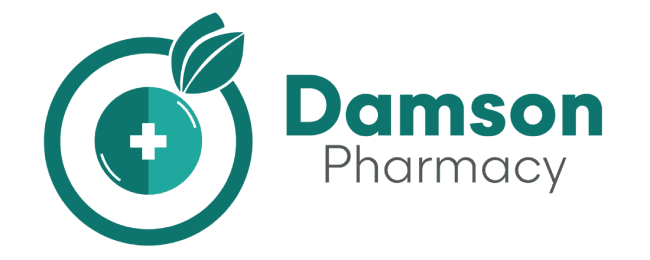
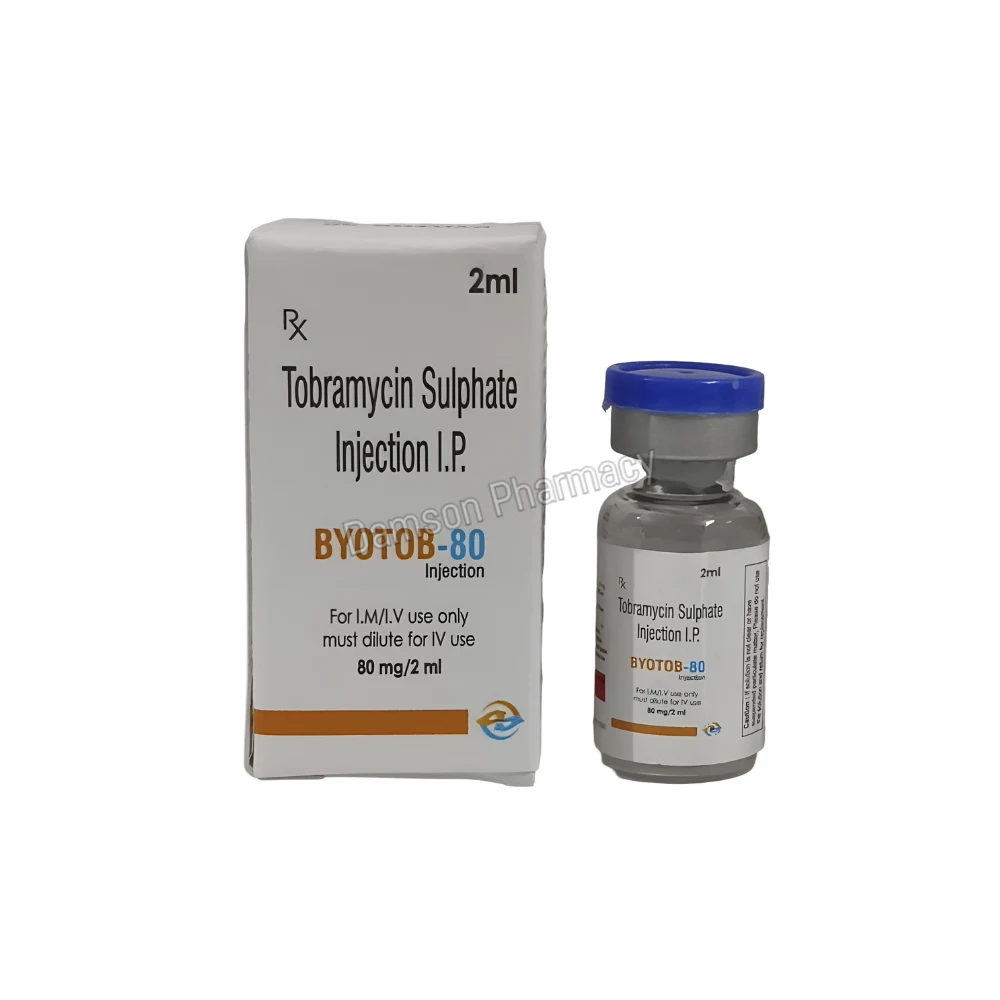
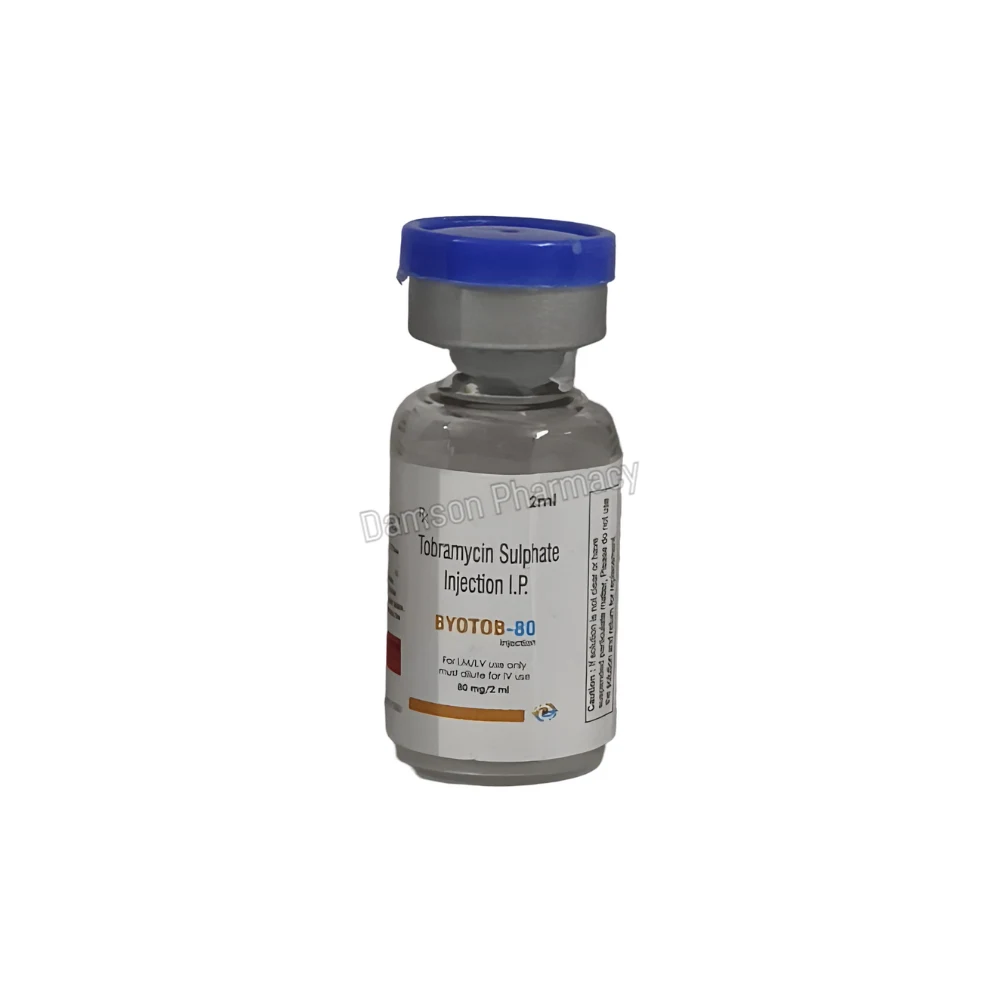
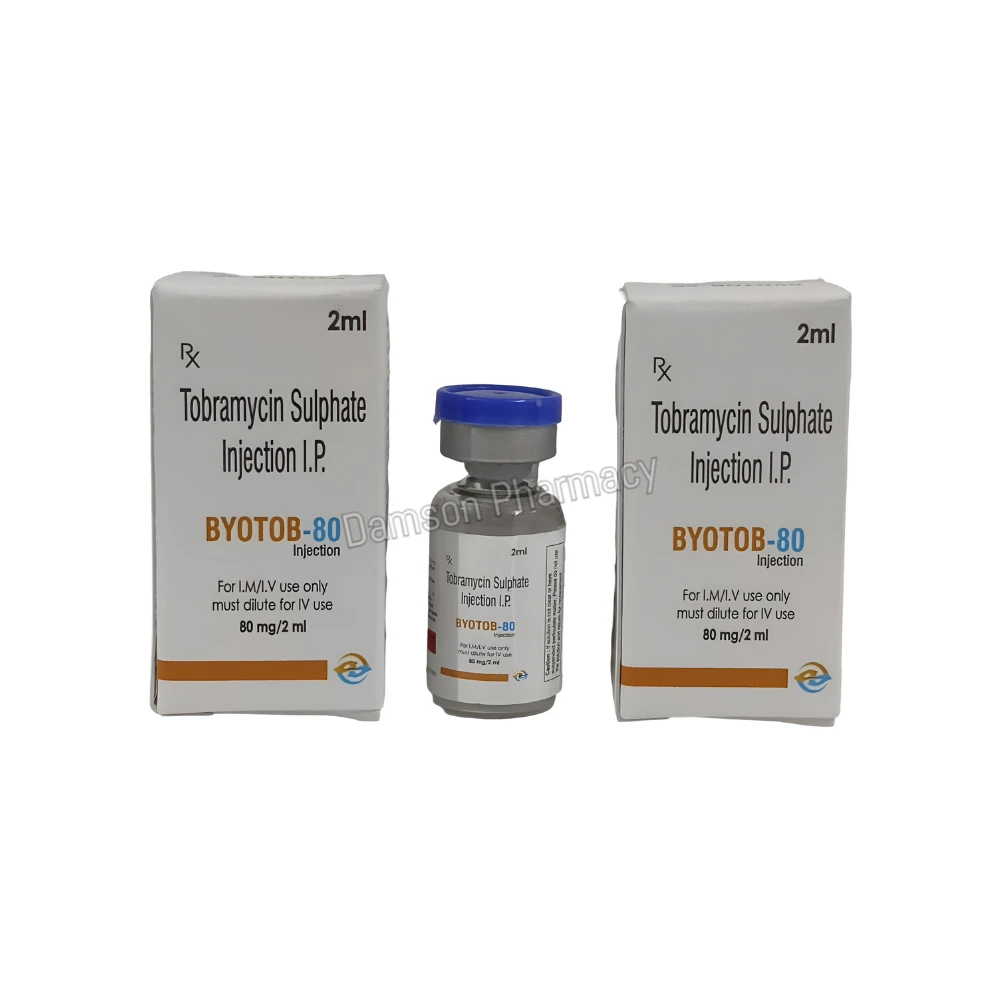

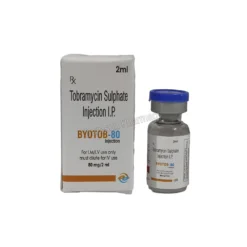
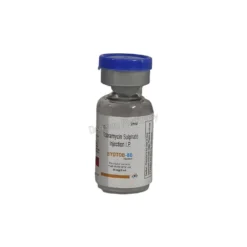
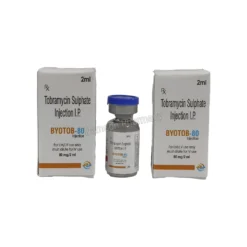

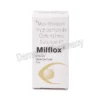
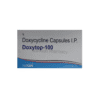
Reviews
There are no reviews yet.